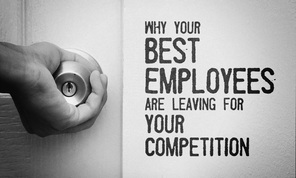But training is a vital component for any business. It’s what keeps staff feeling refreshed, operations ‘on point’, and reputation high on the agenda. Fail to invest in professional and personal development, and you will quickly find both your employees and customers looking elsewhere.
Irish unemployment is at a crucial low of 4.5% - can your company compete for talent? Getting the most out of staff training and investment could be your key.
Top HR Department Tips for Staff Training
- Research, Research, Research
Between the earlier alarm call to catch a train or flight, the stress of finding the location and the boring, overestimated speaker, your employee can be left frustrated with the loss of time and lack of learning. Meanwhile, you have failed to improve employee skills and lost out financially.
Doing your research on the best courses or host associations is key. Implementing a mentoring scheme in work can help senior staff identify what skills their junior colleagues could benefit from, while e-learning courses give employees the option to develop more flexibly, avoiding the dreaded stress of commuting to courses, or juggling family commitments.
By taking the time to understand which skills you need to improve in your employees and the best training options available, you can get the most out of the resources, money and time that you use as a business to develop your workforce.
- If In Doubt, Ask!
While you might have an idea of the needs of the overall organisation, some employees may be more experienced than others in different aspects of their jobs. Some may have received training in previous employment, while others may want to develop some skills associated more closely to their particular job title and role within the company.
As an employer, you can maximise training opportunities by evaluating what the business needs as a whole, as well as ask staff to request training that they are interested in and feel would improve their jobs. Whether it is a certain course or provider they have heard of or taking part in Personal Development Plans during their appraisals to voice their own training goals, your staff can help you to invest efficiently in development, so you can get more bang for your buck.
- After-Training Feedback
Implementing a process through your HR team, whereby staff can share feedback on the courses they have attended and their recommendations for future training, will give you an insight into the quality of courses or conferences you are investing in, and help you evaluate your choices for future professional development.
Train Your Way to the Top
All companies, especially small businesses, struggle to give up the time, money and resources to provide employee development and training. Weeding out the useful from the irrelevant courses, as well as recognising staff training goals will help you to invest in the right training for the right person, at the right time.
Make sure your resources aren’t wasted – research and use your HR team to ask staff the right questions, before and after you embark on your training journey.










 RSS Feed
RSS Feed